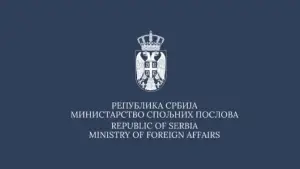Q:
A:
Citizens still endorse reforms on EU path
Belgrade,
19 August 2012
The EU Integration office stated that if a referendum were held where citizens would be asked if they endorsed Serbia’s membership in the EU, 49% of them would give a positive answer, 25% would be against it, 19% would abstain from answering and 8% would not know which answer to give.
The statement adds that these are the results of the first public opinion poll in 2012 themed “European orientation of Serbian citizens – trends”, which the Office carried out at the end of June.
The poll was conducted in line with the Eurobarometer standard and it included 1,034 participants beyond 18 years of age. It showed that the current level of citizens’ support to the EU is by 2% lower than in the previous poll, and that the percentage of those opposing the membership also decreased by 3%.
Forty-one percent believe that the EU membership would be a good thing for Serbia, 28% that it is bad and 31% that it is neither good nor bad.
Of those opposing Serbia’s EU entry, the largest percentage (19%) believe that the membership would bring nothing good to Serbia, 14% are opposed because of the EU’s “politics of conditioning, blackmail and pressure” and 15% do not have the answer to the question why they would vote against EU entry.
A large number of citizens (68%) still believe that reforms necessary for Serbia’s EU accession should be implemented regardless of the membership, because they are good for the country.
However, a decline in unconditional support to reforms is noticeable in comparison with the previous survey, when as many as 85% of citizens had a positive stance towards reforms.
The largest number of citizens (41%) sees the fight against corruption as the most important and an issue which most affects their everyday lives.
Despite the fact that the percentage of those believing that Kosovo is the main condition for Serbia’s acquisition of candidate status has decreased, the majority of citizens (41%) still see this issue as the main obstacle to candidacy.
In line with this, 61% of citizens understand the importance of this issue and believe that Belgrade and Pristina should resolve their issues regardless of whether the EU demands that or not.
The majority of citizens believe that candidate status would bring a better life to Serbia, new jobs (32%) and access to European funds (27%), while the number of those who associate candidacy with more red tape, higher prices and tax has considerably decreased (17%).
As the main factors hampering Serbia’s EU entry, citizens listed the EU policy of constant conditioning (37.48%) and the incompetence of the domestic leadership (19.44%), while there is a lower percentage of citizens (8.14%) who see the mentality of and a lack of readiness to embrace change in the Serbian people as the main obstacle.
There is also a decrease in the percentage of those ready to engage in professional development or even change their current habits in order to gain EU entry. For instance, relevant to December 2009, when as many as 44% of citizens were ready to accept additional education, the number has now dropped to 35%.
Citizens are now better informed about EU funds, therefore 57% see the EU as Serbia’s greatest donor since 2000, which is consistent with the actual state of affairs as the EU and its members are indeed the largest donors and investors in Serbia, followed by the USA, Norway, Switzerland and Japan.
Up to 30% of Serbian citizens believe that the EU will manage to overcome its present problems, but will not be so open to new members, 16% believe that it will overcome its problems and continue to enlarge while 25% believe that the EU would sooner completely close its doors of even fall apart than continue to grown and strengthen.
For the major part of citizens (39%), the EU is still a road to a better future of young people, more employment opportunities (35%), and possibilities for freer movements within the EU (32%).
Since 2002, the EU Integration Office has regularly conducted public opinion polls to assess citizens’ stances and interests and their expectations from politicians for whom they voted.
The poll was conducted in line with the Eurobarometer standard and it included 1,034 participants beyond 18 years of age. It showed that the current level of citizens’ support to the EU is by 2% lower than in the previous poll, and that the percentage of those opposing the membership also decreased by 3%.
Forty-one percent believe that the EU membership would be a good thing for Serbia, 28% that it is bad and 31% that it is neither good nor bad.
Of those opposing Serbia’s EU entry, the largest percentage (19%) believe that the membership would bring nothing good to Serbia, 14% are opposed because of the EU’s “politics of conditioning, blackmail and pressure” and 15% do not have the answer to the question why they would vote against EU entry.
A large number of citizens (68%) still believe that reforms necessary for Serbia’s EU accession should be implemented regardless of the membership, because they are good for the country.
However, a decline in unconditional support to reforms is noticeable in comparison with the previous survey, when as many as 85% of citizens had a positive stance towards reforms.
The largest number of citizens (41%) sees the fight against corruption as the most important and an issue which most affects their everyday lives.
Despite the fact that the percentage of those believing that Kosovo is the main condition for Serbia’s acquisition of candidate status has decreased, the majority of citizens (41%) still see this issue as the main obstacle to candidacy.
In line with this, 61% of citizens understand the importance of this issue and believe that Belgrade and Pristina should resolve their issues regardless of whether the EU demands that or not.
The majority of citizens believe that candidate status would bring a better life to Serbia, new jobs (32%) and access to European funds (27%), while the number of those who associate candidacy with more red tape, higher prices and tax has considerably decreased (17%).
As the main factors hampering Serbia’s EU entry, citizens listed the EU policy of constant conditioning (37.48%) and the incompetence of the domestic leadership (19.44%), while there is a lower percentage of citizens (8.14%) who see the mentality of and a lack of readiness to embrace change in the Serbian people as the main obstacle.
There is also a decrease in the percentage of those ready to engage in professional development or even change their current habits in order to gain EU entry. For instance, relevant to December 2009, when as many as 44% of citizens were ready to accept additional education, the number has now dropped to 35%.
Citizens are now better informed about EU funds, therefore 57% see the EU as Serbia’s greatest donor since 2000, which is consistent with the actual state of affairs as the EU and its members are indeed the largest donors and investors in Serbia, followed by the USA, Norway, Switzerland and Japan.
Up to 30% of Serbian citizens believe that the EU will manage to overcome its present problems, but will not be so open to new members, 16% believe that it will overcome its problems and continue to enlarge while 25% believe that the EU would sooner completely close its doors of even fall apart than continue to grown and strengthen.
For the major part of citizens (39%), the EU is still a road to a better future of young people, more employment opportunities (35%), and possibilities for freer movements within the EU (32%).
Since 2002, the EU Integration Office has regularly conducted public opinion polls to assess citizens’ stances and interests and their expectations from politicians for whom they voted.










